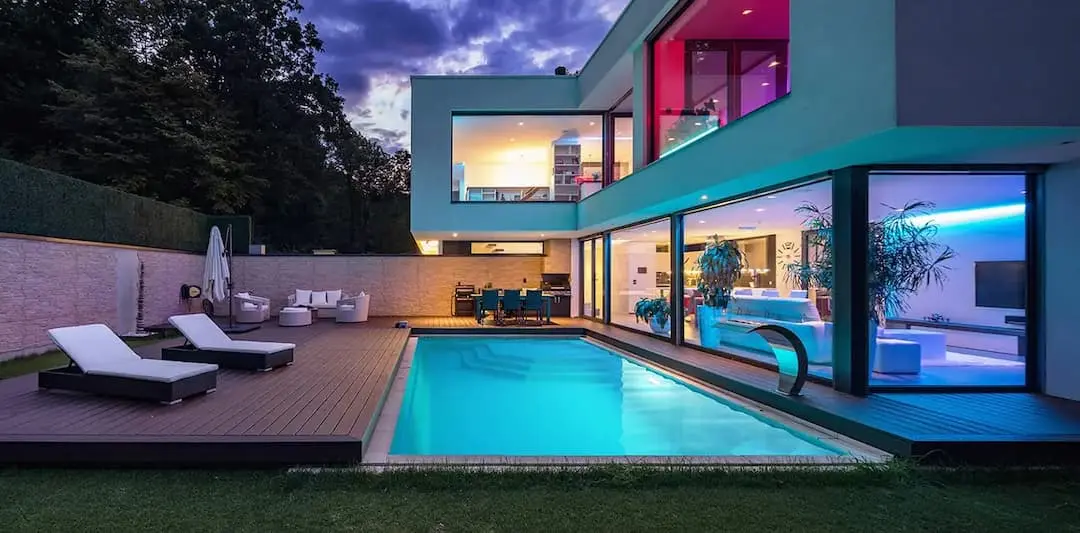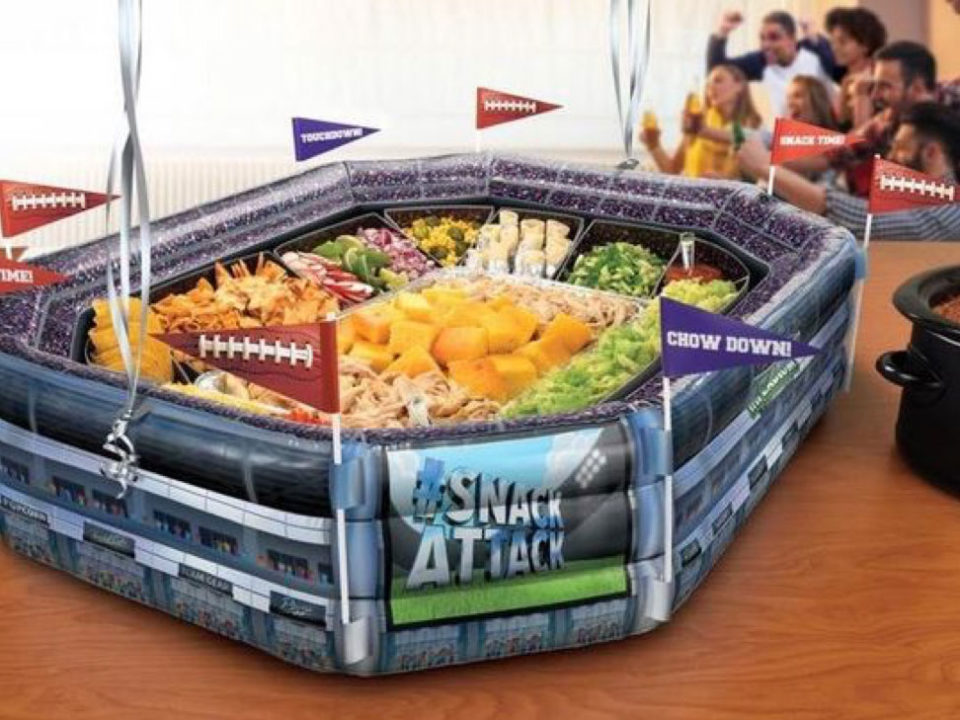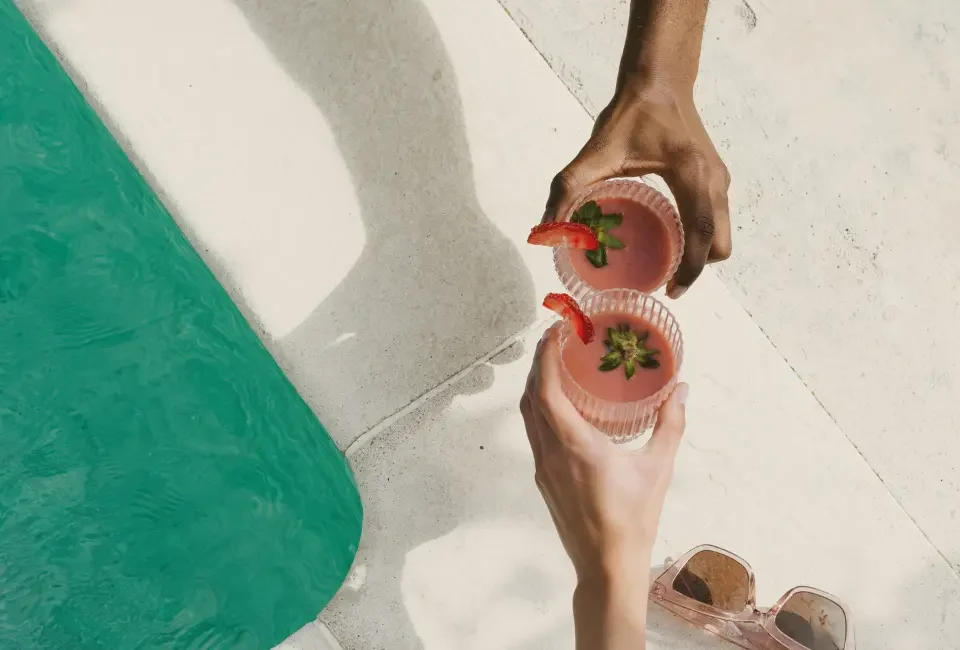Home / 3 Types of Swimming Pools & How to Choose Your Perfect Pool

Swimming Pool Showdown: Vinyl vs Fiberglass Pool
January 13, 2023
How to Select the Best Pool Builder
February 11, 2023When the decision has been made to buy a swimming pool you may not know exactly where to start or what to focus on. The first place to start is what type of pool do you want: vinyl, concrete, or fiberglass pool? Here are a few quick tips to help you sort through the differences between these types of swimming pools.
Popular Types of Inground Swimming Pools
If you’re thinking about installing an inground swimming pool you need to first consider all the options. There are different types of swimming pools that each have both short and long-term benefits and drawbacks. Before choosing a pool builder, make sure you know which type of swimming pool suits your backyard and your budget best.
Fiberglass Pools
Pool Construction and Materials
Fiberglass swimming pools are one-piece shells that can be “dropped into” your yard in a very short period of time – just 3 to 5 days in most cases. They are well suited to areas with cold weather seasons because the flexural strength of fiberglass prevents cracking during freezing-thawing cycles.
Fiberglass pools come in a wide variety of shapes and colors and can include many options such as perimeter tile, inlaid tile, tile mosaics, colored pool finishes, built-in water features like cascades and streams, and LED lighting.
In addition, fiberglass pools act as natural insulators, requiring less electricity/gas to heat the pool. Algae are less prone to attach to the smooth surface of a fiberglass pool, requiring fewer chemicals and maintenance.
Estimated maintenance costs over 10 years are less than one-quarter of the cost for a gunite pool!
Fiberglass Pool Pros:
- Quick and simple installation.
- Variety of shapes and styles.
- Smooth finish means no skin abrasions.
- Algae resistant means easier maintenance.
- Non-porous surface resists the problems associated with imbalanced water chemistry, requiring less chemical maintenance, labor, and electricity.
Fiberglass Pool Cons:
- Fiberglass swimming pools do cost more than vinyl.
- A shopper purchasing this type of pool may value long-term benefits and quality over short-term lower pricing.
Vinyl Liner Pools
Also known as packaged pools, these consist of components, including wall panels, braces, steps, and a vinyl liner, that are assembled together to create a swimming pool.
Pool Construction & Materials
The two most popular materials for wall panels, braces, and steps are steel and polymer. Steel-packaged swimming pools are generally less expensive than polymer swimming pools; although, other factors, such as decking and extra accessories, can add to the overall cost. It is frowned upon to use steel walls with a salt system due to corrosion.
The Liner
A custom-made sheet of vinyl is installed over the polymer or steel walls and steps. There are many advantages to vinyl liners:
- They make all surfaces of your pool smooth to the touch.
- They cannot crack like a concrete pool and never need repainting or re-plastering.
Vinyl Liner Pool Pros:
- Easy to maintain.
- Less expensive.
- There are a variety of liner patterns available and are soft to the touch.
Vinyl Liner Pool Cons:
- The liner will need to be replaced.
- More chemical usage.
- Algae stick to walls.
- A shopper purchasing this type of pool may value the lower upfront cost of a vinyl pool and is okay to replace liners and have maintenance later.
Gunite Pools
Gunite or concrete swimming pools are often used in commercial applications, such as hotel swimming pools. Gunite pools require acid washing and re-plastering.
Pool Installation
Installation of a gunite swimming pool can take several months. It is the most expensive type of pool to install and maintain: monthly pool service is required, as is excessive use of chemicals and electricity. The estimated maintenance cost over 10 years is over $16,000 and up.
Gunite Pool Pros:
- There is flexibility with design options, such as vanishing edges and swim-up bars.
- High-end look.
Gunite Pool Cons:
- Textured surfaces can be uncomfortable and abrasive.
- Typically the most expensive type of pool.
- Lengthy construction time.
- Expensive to repair.
- The surface can attract algae and bacteria and can easily discolor.
- A shopper who purchases a concrete pool may value the ability to have a custom amenity such as a vanishing edge or swim-up bar and is okay with the increased cost and long-term maintenance.
Final Word: Types of Swimming Pools
Parrot Bay Pools offers pools from simple and modern to resort luxury-style pools and everything in between. Our customers trust us to provide them with quality residential pools and spas, top-notch service, and fast, proven solutions to their questions.
Contact us by calling (919) 888-0327, filling out our contact form for a consultation, or visiting our fiberglass pool design showroom in Benson, North Carolina! While our swimming pool showroom is in Benson, we serve Holly Springs, Fayetteville, Raleigh, Cary, Clayton, Pittsboro, Fuquay-Varina, and other areas.



